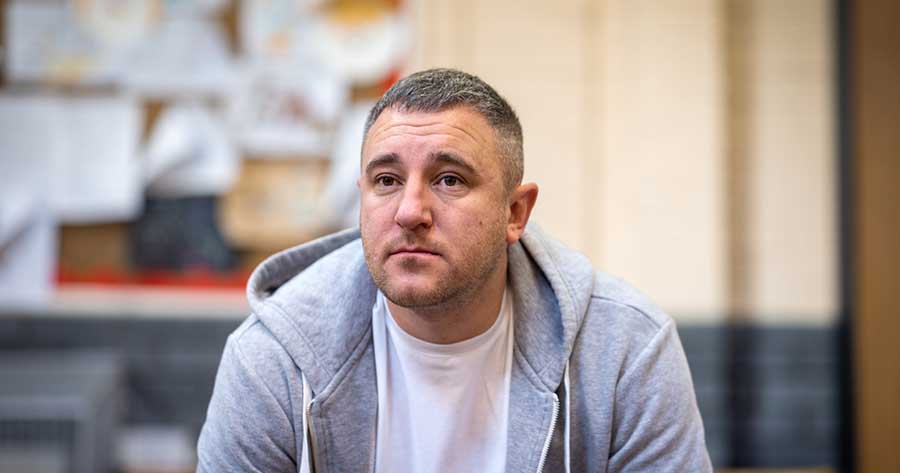The need for appropriate postgraduate education for diabetes specialist nurses (DSNs) and the important role of the nurse specialist within a multidisciplinary team has been highlighted by Gledhill (1997). In addition, Higgins (1997) called for formal and structured educational programmes for diabetes nurses working in both primary and secondary care. She also highlighted the role of hospital-based diabetes nurses in supporting and educating practice nurses, as primary care teams become increasingly involved in diabetes management.
In response, a new advanced level course in diabetes care has been developed by a DSN for the University of Exeter. The Master’s level (5/6) Postgraduate Diploma in Diabetes Care aims to give students a broad understanding of all the issues that contribute to and have an impact on the effective delivery of health services to people with diabetes mellitus (Table 1).
Why have an advanced level course?
For some time, DSNs have recognised the need for an advanced level diabetes course to give them both academic credibility and clinical expertise (Royal College of Nursing, 1992). Also, patients have the right to know what standards of expertise health professionals have achieved.
With nurse education now in the higher education framework, the public can have a system of measurements with which they are familiar – BSc, MSc and PhD. This offers DSNs, and indeed the nursing profession as a whole, the opportunity to resolve some of the problems in their recent history, i.e. the lack of an academic career pathway, the clinical grading issues, and as Faugier (1996) highlighted, the plethora of titles with which we have been labelled.
Meeting patients’ needs
It has long been recognised that diabetes health care requires multiprofessional team working across primary and secondary care health services. What all professionals should be working to achieve is a seamless service that allows patients access to the most appropriate professional for their health needs at the time they require it, thereby promoting good quality of life and reducing morbidity and mortality for people with diabetes (Alexander, 1998).
The NHS Executive Guidelines (1997) recognise that the healthcare needs of people with diabetes and their families present a particular challenge to health services in England. Both the Diabetes Control and Complications Trial Report (DCCT Research Group, 1993) and the King’s Fund Report (1996) highlight the enormous financial cost that diabetes places on health services and its cost to patients and their families. The St Vincent Declaration action programme (WHO, 1995) identifies the potential for preventing many of the complications of the disease.
If we are to help patients achieve their optimal health, all health professionals working in this field need to have sufficient knowledge of the disease to give their patients the correct advice and support.
A British Diabetic Association report Training and Professional Development in Diabetes Care (1996) reviewed the provision of continuing education for healthcare professionals in diabetes and made recommendations about its future structure and vision with the aim of implementing the St Vincent Declaration recommendations. The report advocated using active rather than directive learning, multidisciplinary training to reflect the teamwork necessary in diabetes care, and training based on practice.
Diabetes care, with its multiprofessional teamworking philosophy, is a good health care paradigm for other health services (J Tooke, personal communication, 1997). Diabetes education should lead by example and provide a collaborative educational environment that encourages students from different professions, working in both primary and secondary care, to study together. Until now there appears to have been no advanced level diabetes course that does this.
Most advanced level courses are provided for one professional group; some are provided purely for primary care staff while others are provided for hospital specialist staff only. While such courses undoubtedly develop specialist expertise, they may lack the active role model example, in the classroom, of multiprofessional team learning and working. Consequently, they reinforce the old barriers of professional, primary and secondary care protectionism and, in practice, prevent the service goal of achieving true integration of diabetes services.
Conclusion
Aimed at a wider professional group than just DSNs, the University of Exeter’s Diploma in Diabetes Care is designed for any registered health professional working in diabetes care who wants to advance in both the theoretical and clinical aspects of diabetes. Through participative multiprofessional team working in the educational setting, this course can help to build bridges between health professionals and achieve better services for people with diabetes.
Advanced level courses in diabetes care are needed to fill the gaps in the educational and career pathways for DSNs and other health professionals and ensure the provision of knowledgeable and clinically skilled diabetes health practitioners for the future.




How a new model of care has improved outcomes for people with diabetes.
2 Dec 2025